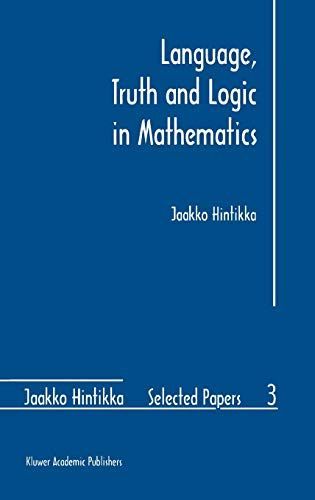
Language, Truth and Logic in Mathematics
One can distinguish, roughly speaking, two different approaches to the philosophy of mathematics. On the one hand, some philosophers (and some mathematicians) take the nature and the results of mathematicians' activities as given, and go on to ask what philosophical morals one might perhaps find in their story. On the other hand, some philosophers, logicians and mathematicians have tried or are trying to subject the very concepts which mathematicians are using in their work to critical scrutiny. In practice this usually means scrutinizing the logical and linguistic tools mathematicians wield. Such scrutiny can scarcely help relying on philosophical ideas and principles. In other words it can scarcely help being literally a study of language, truth and logic in mathematics, albeit not necessarily in the spirit of AJ. Ayer. As its title indicates, the essays included in the present volume represent the latter approach. In most of them one of the fundamental concepts in the foundations of mathematics and logic is subjected to a scrutiny from a largely novel point of view. Typically, it turns out that the concept in question is in need of a revision or reconsideration or at least can be given a new twist. The results of such a re-examination are not primarily critical, however, but typically open up new constructive possibilities. The consequences of such deconstructions and reconstructions are often quite sweeping, and are explored in the same paper or in others.